Water is essential for life, but not all water is created equal. Depending on where you live and your water source, you may be exposed to various contaminants that can affect your health and well-being.
For this reason, many people opt for bottled water or install a water filter in their homes. But which is better for you? Let’s compare bottled and filtered water to help you decide which one suits your needs and preferences.
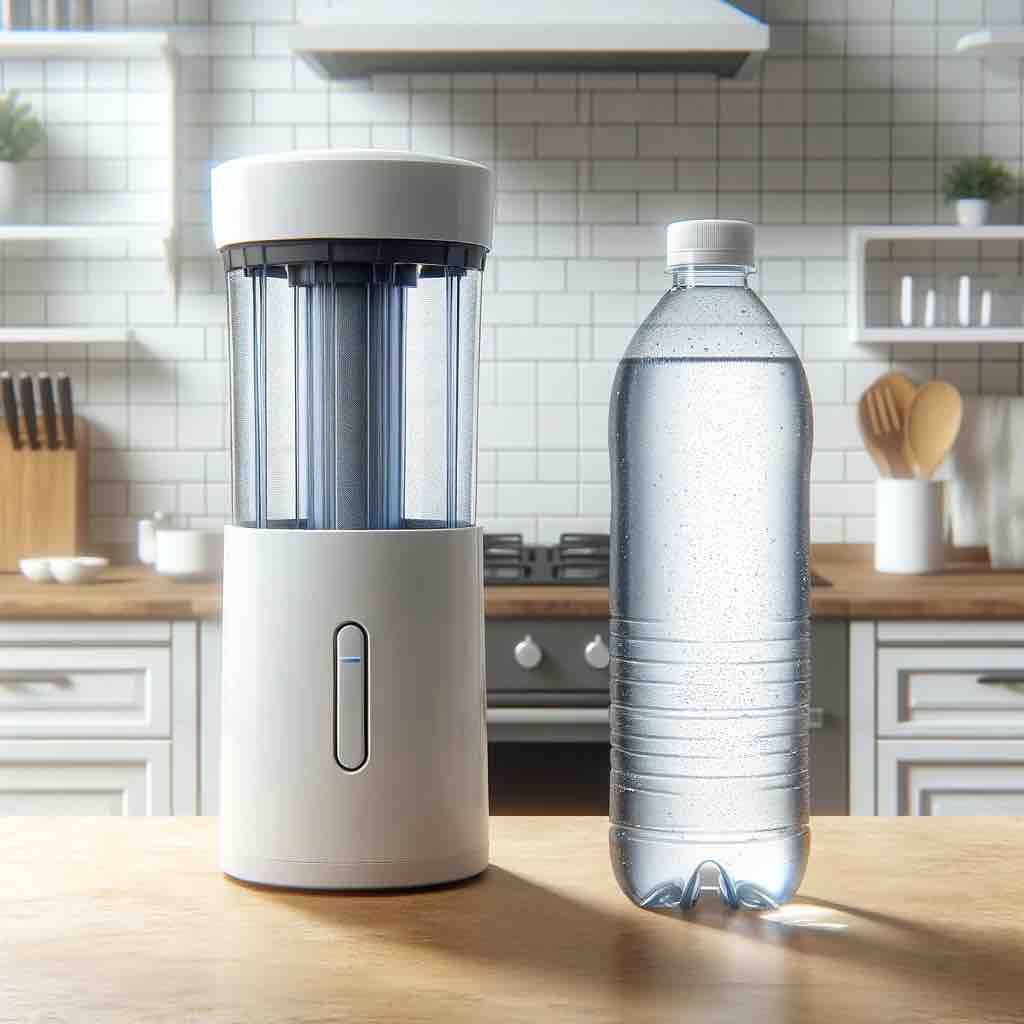
Today’s Focus of Attention is reader-supported. We sometimes include products we think are useful for our readers. If you buy through links on this page, we may earn a small commission.
What is Bottled Water?
Bottled water is produced by independent manufacturers and packaged in bottles. It originates from various sources, such as lakes, streams, glaciers, wells, and springs.
Some brands filter their products to remove harmful substances, while others enhance them with minerals or flavours to improve taste.
What is Filtered Water?
Filtered water comes from your tap and passes through a device that removes specific impurities. There’s a variety of water filters, such as activated carbon, reverse osmosis, distillation, and ultraviolet.
Each has its own advantages and disadvantages, depending on the quality of your tap water and the contaminants you wish to reduce.
Bottled Water vs. Filtered Water: Which One is Better?
To answer this question, we need to consider several factors: price, convenience, health, flavour, and environmental impact. Let’s examine each factor to see how bottled and filtered water compare.
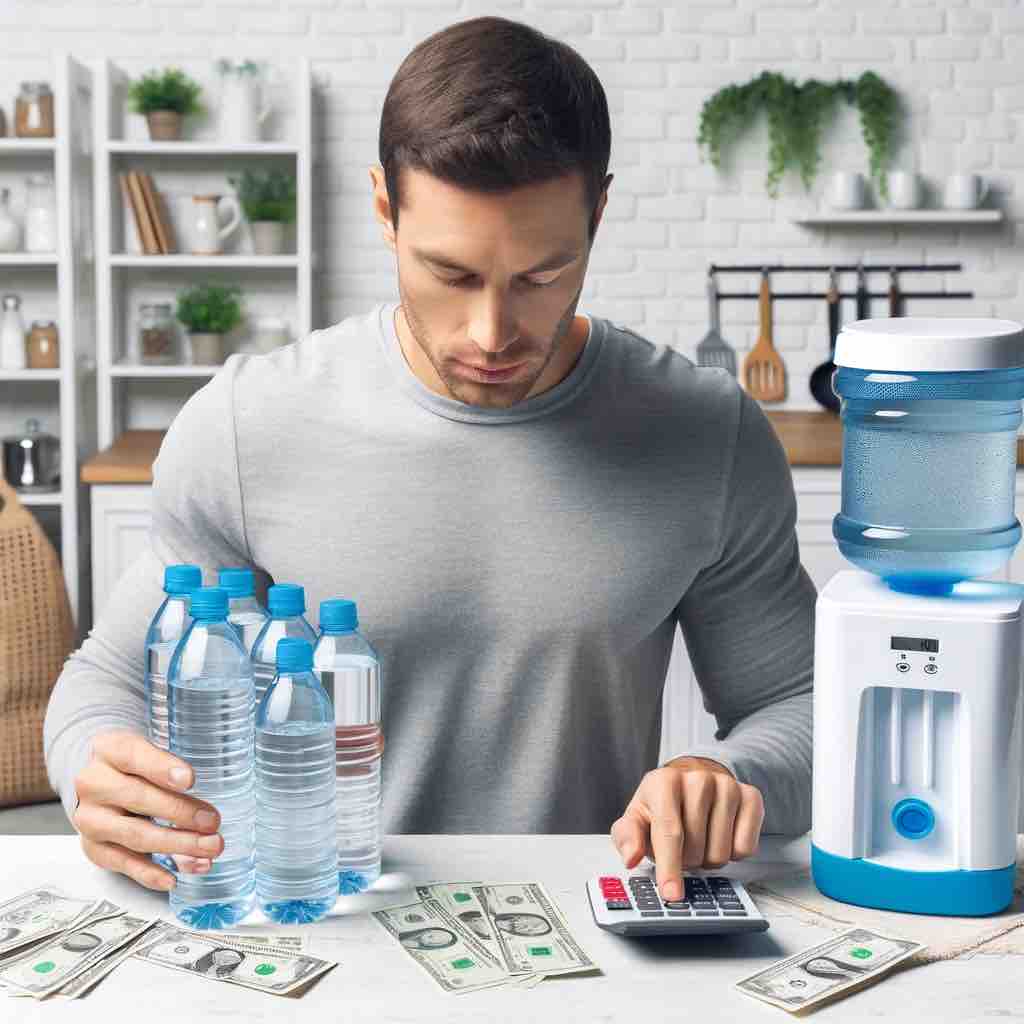
Cost
Buying bottled water daily can be expensive, especially if you consume a lot or have a large family.
To illustrate, a 40-pack of 500-ml bottles of Ice Mountain costs $4.98 at Sam’s Club. Drinking one gallon of bottled water every day would cost you around $0.91, or $332 per year. Not including membership or transport expenses.
On the flip side, filtering your tap water is more budget-friendly. The initial investment for a water filter might be high, but pays off over time.
For instance, as reported by EcoPureHome, a basic under-sink carbon filter costs about $50 and purifies up to 2,000 gallons of water before needing replacement. So, filtering one gallon of tap water per day would cost you about $0.03 or $10 per year.
Convenience
Bottled water offers more mobility and flexibility than filtered water. You take it with you wherever you go and choose from different types and brands. However, this benefit comes at the cost of storage, transport, and disposal of empty bottles.
Filtered water is less convenient in terms of portability but gives unlimited access to clean water at home without store visits or deliveries.
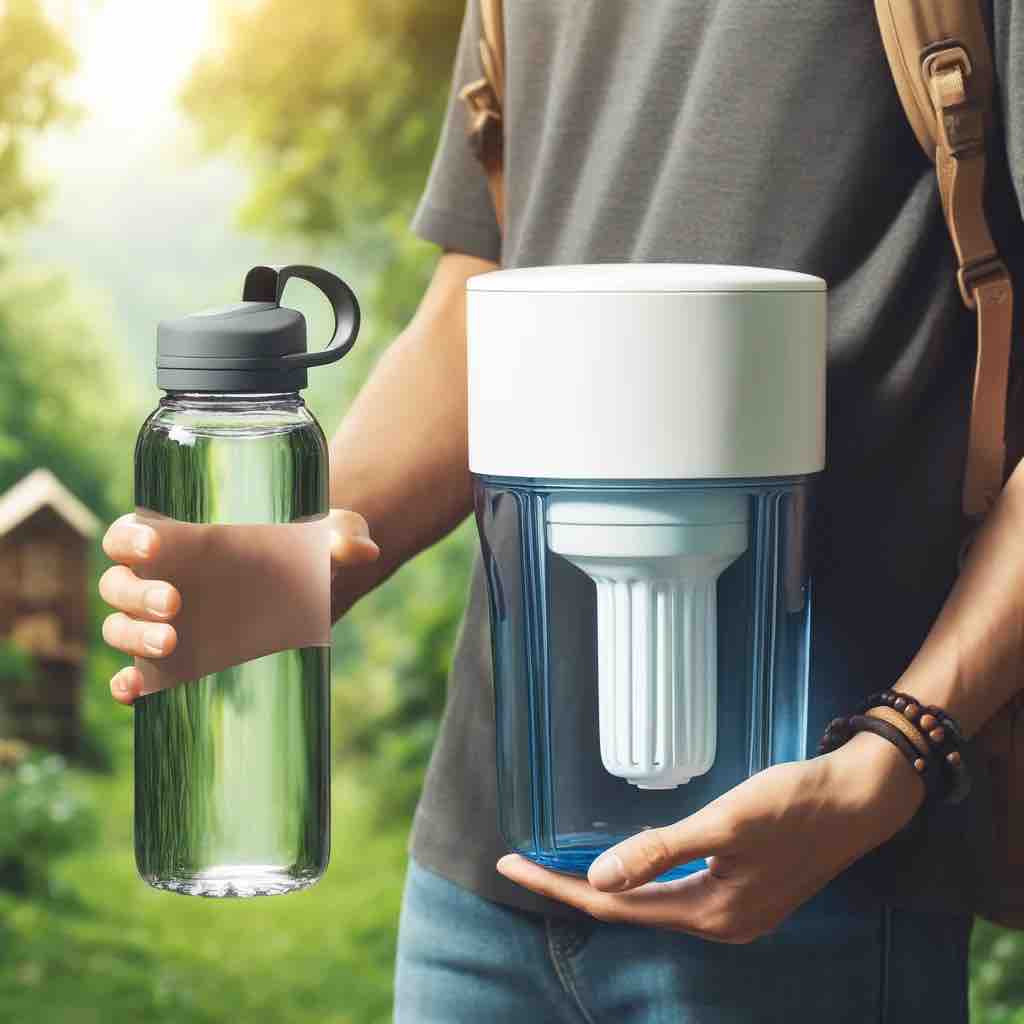
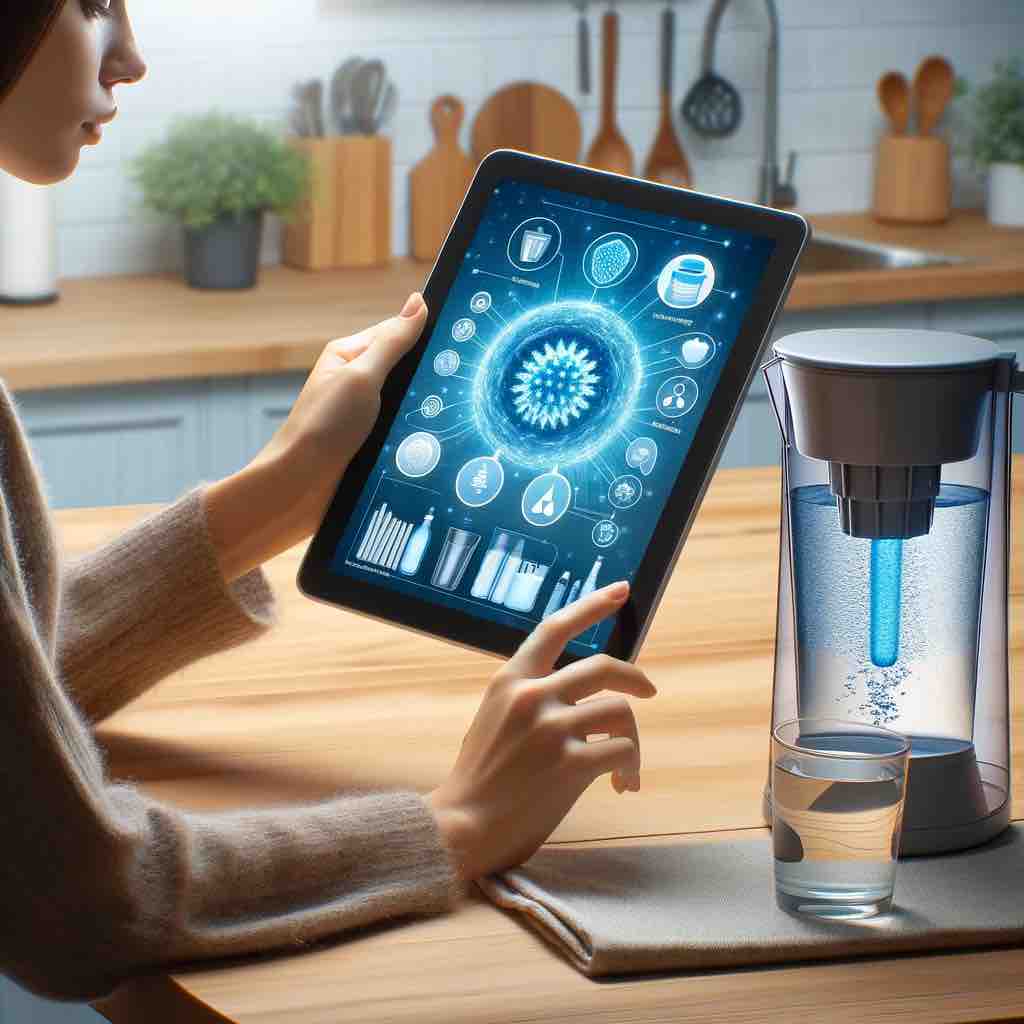
Health
This is the most crucial factor to consider. Both bottled and filtered water offer healthy options, but they also come with risks.
In America, the Food and Drug Administration (FDA) regulates bottled water but doesn’t require manufacturers to disclose the source or treatment methods. This lack of transparency suggests that bottled water may be no better, or even worse, than tap water regarding contamination.
Moreover, plastic bottles leach harmful chemicals into the water over time or when exposed to heat or sunlight.
Filtered water is regulated by the Environmental Protection Agency (EPA), but not all local water systems adhere to these standards. Hence, some filters are ineffective if not properly maintained.
Taste
The taste of water is subjective and can vary depending on its source and treatment. Some people prefer the mineral-rich or flavoured options of bottled water, while others go for filtered water that is free from chlorine or other chemicals.
If you want to create your own type, enhance your water by adding lemon, cucumber, mint, or other natural ingredients.
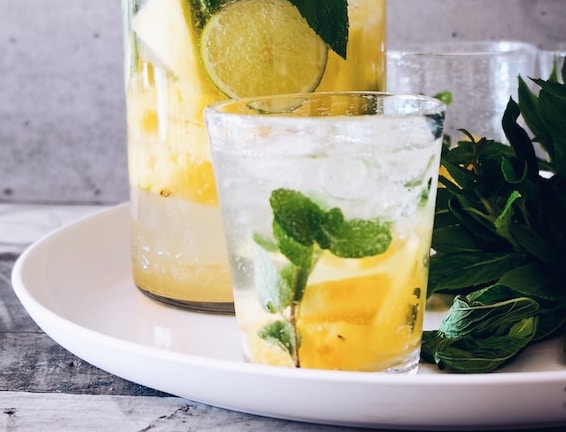
Environmental Impact of Bottled Water
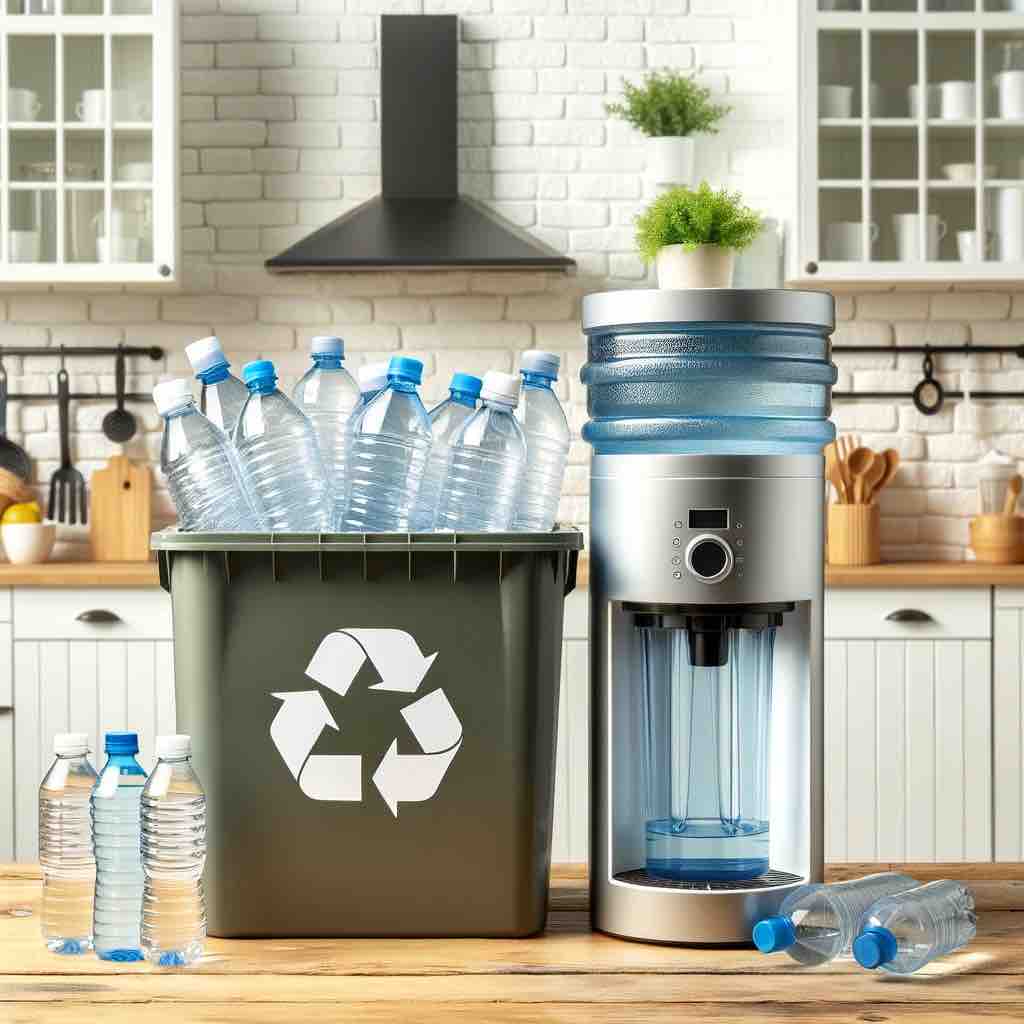
The dark side of bottled water is its contribution to plastic pollution and climate change gases. Americans use roughly 50 billion plastic water bottles every year, with only 23% being recycled.
The rest ends up in landfills and oceans, harming wildlife and ecosystems. In addition, producing, transporting, and disposing of plastic containers requires a huge amount of energy and resources.
Filtered water, on the other hand, reduces waste and greenhouse gas emissions, making it a more environmentally friendly option. A water purifier keeps you from using about 3,000 PET bottles per year. This action minimises your environmental impact and saves money at the same time.
How to Choose a Water Filter
Prior to purchase, bear in mind these key factors:
How Clean is Your Tap Water?
Use a home water testing kit or request a water quality report from your local supplier. This will help you identify the noxious agents present in your water.
Common toxic substances include chlorine, lead, arsenic, fluoride, nitrates, bacteria, viruses, and pesticides.
Contaminants You Are Concerned About
Not all purifiers share the same capabilities or limitations. For instance, activated carbon filters are effective at reducing chlorine, organic matter, and some metals, but they fall short in removing fluoride, nitrates, or microorganisms.
The reverse osmosis one gets rid of almost all harmful pollutants, including fluoride and nitrates, but they eliminate beneficial minerals.
Check the NSF/ANSI standards and certifications of your device.
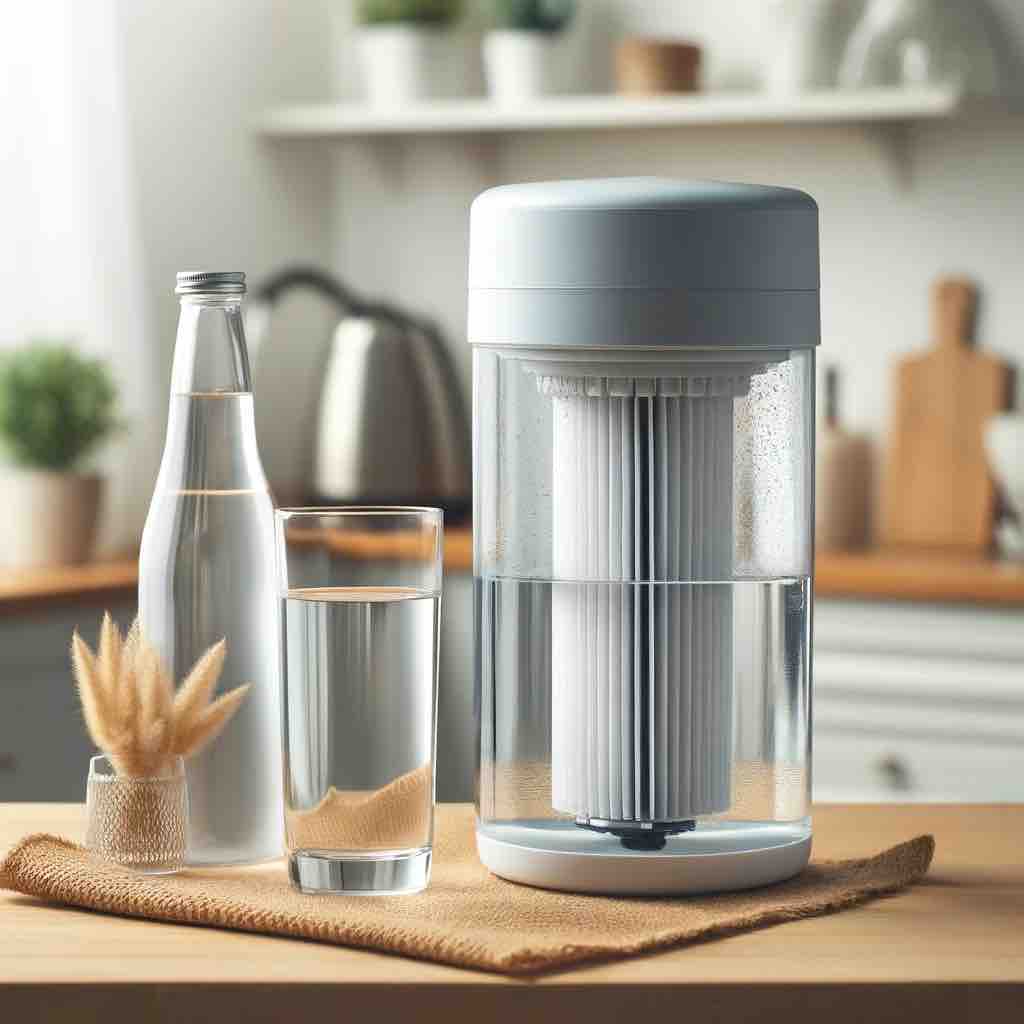
Size and Capacity
Choose a filter that can handle the volume and flow rate of water you use. For example, if you have a large family or consume too much water for cooking, washing, or gardening, you may need a whole-house treatment system.
But if you only want to filter your drinking water, pick a smaller unit installed under the sink or on the tap.
Cost and Maintenance
Consider not only the initial investment but also the long-term costs of cartridge replacement and maintenance. Some filters are more expensive than others but offer longer lifespans or demand less service.
For more tailored advice, consult with a professional plumber or water treatment specialist.
So, should you opt for a water filter or bottled water? The choice depends on your personal preferences and needs. Both have their pros and cons. Bottled water offers mobility and variety but comes at a higher price and has an environmental impact.
If you look for cost-effectiveness and sustainability, filtered water is your best option. You can filter your tap water to your standards and enjoy all the fresh water you want. However, it requires a hefty initial investment and maintenance.
The choice is yours.
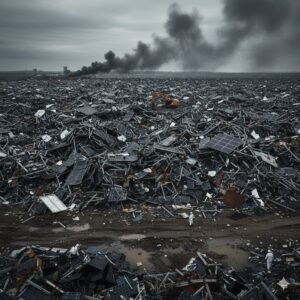


3 thoughts on “Should You Buy a Water Filter or Bottled Water? Which One is Better? ”